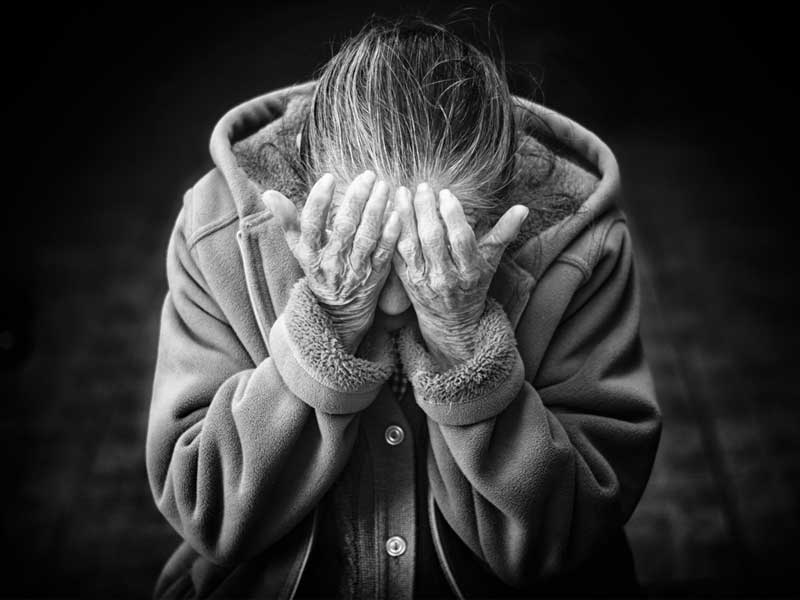
The World Health Organisation on Thursday said that 55 million people living with dementia worldwide. And with population aging, this number is set to jump a whopping 40% to 78 million by 2030, the world health body said in its report. Dementia is a neurological disorder that “robs” people of their “memories, independence and dignity,” WHO chief Tedros Adhanom Ghebreyesus said in a statement. “The world is failing people with dementia, and that hurts all of us,” the chief of the world health body added.
Table of Content:-
To know more about this disease, which affects more than 4 million Indians as per the Alzheimer’s Association, Onlymyhealth spoke to Dr Preeti Singh, Senior Consultant, Clinical Psychology and Psychotherapy at Paras Hospitals, Gurugram. Dr Singh describes dementia as “a very painful condition to lose your loved ones to because they are there, yet not there with you.”
What Is Dementia?

(Photo Credit: Freepik)
It is a neurological disorder/syndrome in which there is deterioration in memory, thinking, reasoning, behaviour, and the ability to perform daily tasks. The disease onset is generally around 65 years of age. However, in certain cases, it can occur even at the age of 40. Dementia is twice as likely to affect women as compared to men.
Symptoms Of Dementia
Some of the symptoms of dementia are:
- Forgetfulness
- Difficulty in doing familiar tasks.
- Confusion
- Impaired judgment
- Gradual decline in intellectual functioning
- Dementia can also lead to psychological changes in the individual which can range from personality changes, depressed mood, anxiety and hallucinations.
Causes Behind Dementia

(Photo Credit: Freepik)
This disease doesn’t occur due to one specific reason but has a range of factors. These are:
- Neurodegenerative disorders like, Alzheimer's disease, Huntington’s disease and Multiple Sclerosis
- Traumatic brain injury
- Infection of the central nervous system like HIV, meningitis, etc.
- Chronic alcohol abuse
Also read: Negative Thinking Increases The Risk Of Dementia and Alzheimer’s
Who Is More Prone To Develop Dementia
Certain risk factors make some people more prone to develop dementia. These risk factors are:
- Age
- History of dementia in the family.
- If an individual suffers from diseases like diabetes, Down syndrome, multiple sclerosis, heart disease, and sleep apnea.
- Depression
- Sedentary lifestyle
- Substance abuse
- Stroke
- Infections like syphilis
Tips To Prevent Dementia
There are some preventive tips against dementia. These are:
- Eating a balanced diet and exercising regularly
- Cutting back on smoking and drinking.
- Having a well-balanced social life.
- Doing brain-stimulating activities like crosswords, sudoku, chess, card games like patience or bridge
Also read: Do You Live Near A Highway? Beware Of Neurological Disorders and Dementia
What Is The Treatment For Dementia?
This disease cannot be cured fully. However, if detected early, its symptoms can be managed to prevent rapid deterioration, Dr Singh said. Some treatment options include:
- It can be treated by pharmacotherapy, i.e. by giving medication for depression, sleep disturbances, hallucinations, parkinsonism, or agitation. Cholinesterase inhibitors are also given.
- Neuro-cognitive retraining can help immensely if started early on, wherein these activities help the brain to make new neuron circuits, leading to improved attention and concentration, and memory functioning.
- Occupational therapy: An occupational therapist can help the individual on how to make their home safer and teach coping behaviors. The purpose is to prevent accidents, such as falls; manage behavior and prepare you for dementia progression.
- Modifying the environment. Reducing clutter and noise can make it easier for someone with dementia to focus and function. Caregivers might need to hide objects that can threaten safety, such as knives and car keys. Monitoring systems can alert them if the person with dementia wanders.
- Simplifying tasks. Break tasks into easier steps and focus on success, not failure. Structure and routine also help reduce confusion in people with dementia.
How Family And Friends Help Dementia Patients?

(Photo Credit: Freepik)
Firstly, through psychoeducation, the family can learn what dementia is, how to cope, and what to expect in the near future. This helps the family and the patient to plan better, before the symptoms worsen, leading to a good quality of life for both. Also, it is crucial for the family to stay connected with the patient and not isolate him/her. Equally important is to stay positive around the person by showing love and affection.
Here are some tips by Dr Singh for the family and friends of dementia patients:
- Be patient
- Stay in touch with them regularly
- Offer a shoulder for them to lean on
- Assist them with tasks
- Create an environment without hazards
Living with dementia isn’t easy. But we can make it a little simpler for the patients by being positive and showing them love and affection.
(With inputs from Dr Preeti Singh, Senior Consultant, Clinical Psychology and Psychotherapy at Paras Hospitals, Gurugram)
Read more articles on Mind and Body
Photo Credit: Unsplash
Also watch this video
How we keep this article up to date:
We work with experts and keep a close eye on the latest in health and wellness. Whenever there is a new research or helpful information, we update our articles with accurate and useful advice.
Current Version